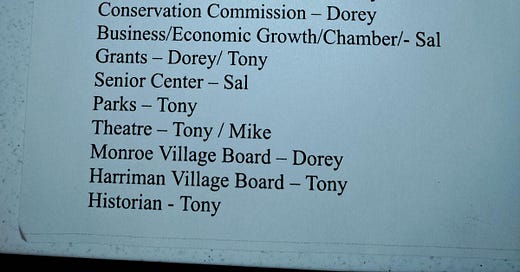Supervisor Cardone Restricts Other Monroe Town Board Members From Doing Their Job
Who, or what, is a "liaison" and why are half of them Tony Cardone?
Note: This is a developing story.
On November 8th, 2023, Maureen Richardson was elected to the Town Board with a whopping 1766 votes.
That may not sound like a lot, but in a local election, 1,500 votes is often enough to win yourself a seat in local govern…



